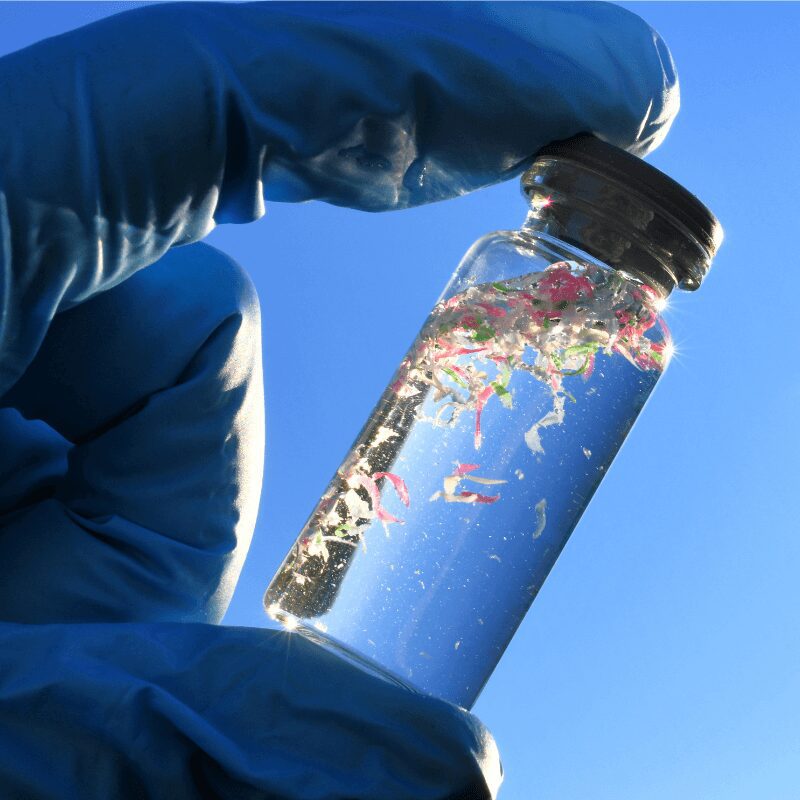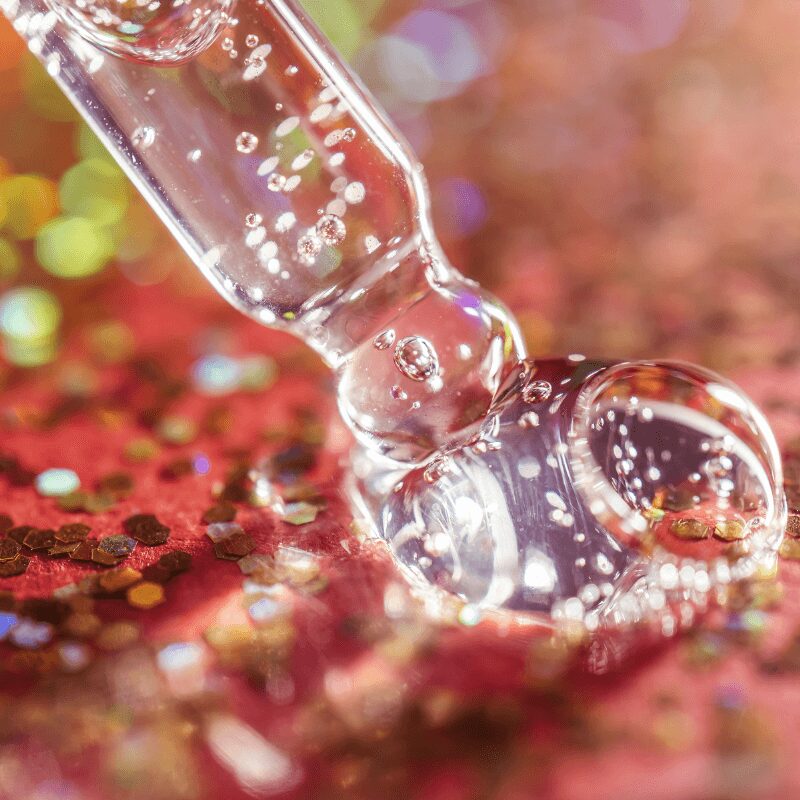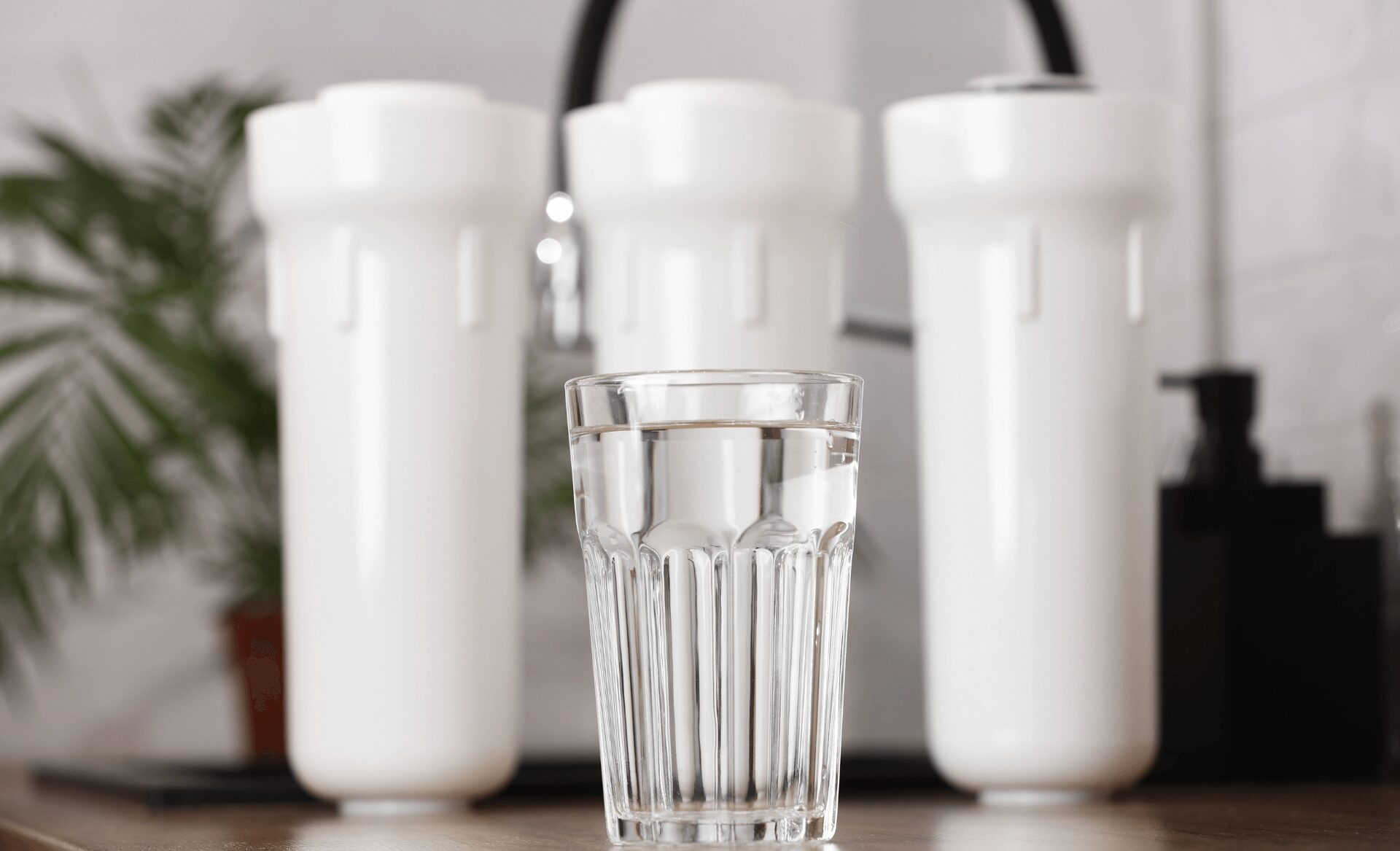It sounds absurd, but studies estimate that the average person consumes about a credit card’s worth of plastic every week. Microplastics—tiny plastic fragments no larger than five millimeters—are contaminating our water, food, and even the air we breathe. These particles originate from everyday plastics, including water bottles, synthetic fabrics, and industrial waste, which slowly break down and infiltrate our ecosystems.
For environmentally conscious businesses, the question isn’t just about whether microplastics are harmful (spoiler alert: they are).
The real question is: What are you doing to protect your employees, customers, and your company’s reputation?
At Bottleless Nation, we specialize in working with businesses that offer advanced water filtration systems that eliminate microplastics while cutting costs and reducing plastic waste. If your business still relies on bottled or municipal tap water, it’s time for a cleaner, more sustainable solution, and we can help you get there!
Microplastics: How They Got Into Your Water
Microplastics don’t just magically appear in our water supply. They come from the plastic-filled world we’ve created. Every time plastic packaging breaks down, clothing made from synthetic fibers is washed, or a disposable water bottle sits in the sun, microscopic plastic particles are released. Once these contaminants enter rivers, lakes, and municipal water supplies, they’re incredibly difficult to remove.
The effects of microplastics on human health are still being studied, but early research suggests links to endocrine disruption, immune system issues, and even potential long-term organ damage. Businesses in industries like hospitality, healthcare, and corporate offices can’t afford to overlook this growing concern. Providing microplastic-free water isn’t just about offering a premium amenity; it’s a critical step toward prioritizing health and sustainability.
Why Businesses Need to Take Action Now
Failing to address microplastic contamination in your workplace water isn’t just a health risk; it’s a business liability. Companies that ignore this issue could face reputational damage, declining consumer trust, and even future regulatory challenges as governments begin tightening water quality standards.

For businesses that serve customers directly, water quality has a direct impact on the customer experience. Imagine a guest discovering that your “premium” bottled water contains microplastics or an employee questioning the quality of the water from your breakroom cooler. Today’s consumers are savvier than ever, and they expect businesses to take responsibility for the quality of the products and services they provide.
Beyond reputation, there’s also a cost-saving factor. Many businesses spend thousands of dollars annually on plastic water bottles or bulky jug delivery services. A bottleless filtration system eliminates these recurring costs while significantly reducing plastic waste. It’s an investment that pays off financially while aligning with sustainability goals.
The Science of Microplastic Filtration: What’s Changed?
Traditional water filters were never designed to handle plastic contaminants at the microscopic level. While basic sediment filters can remove visible debris, they often fail to capture microplastics. Fortunately, advancements in water filtration technology have created new solutions that effectively capture and remove these contaminants.
Reverse Osmosis: The Ultimate Barrier Against Microplastics
Reverse osmosis (RO) is widely recognized as one of the most effective filtration methods available. This system forces water through an ultra-fine membrane, capable of filtering out contaminants as small as 0.0001 microns, which are far smaller than even the tiniest microplastic particles. As a result, RO systems can virtually eliminate microplastics from drinking water, making them an ideal choice for businesses seeking the highest level of filtration.
Carbon Block Filtration: A Reliable Alternative
For businesses looking for a solution that retains beneficial minerals while still filtering out contaminants, carbon block filtration provides a strong defense. These filters use densely packed activated carbon to trap microplastics, chlorine, and volatile organic compounds (VOCs), ensuring that water remains clean and great-tasting. While not as aggressive as reverse osmosis, high-quality carbon block filters with sub-micron pore sizes can still remove a significant percentage of microplastics.
Electrostatic & Ionic Filtration: The Next Evolution
Emerging filtration technologies now incorporate electrostatic and ionic filtration, which use charged particles to attract and trap microplastics. These systems are particularly effective in environments that require ultra-pure water, such as medical facilities, research labs, and high-end hospitality settings.
With these advancements, businesses can no longer accept microplastics in their water. Whether through reverse osmosis, carbon block, or cutting-edge ionic filtration, the right solution is available. It’s just a matter of making the switch.

MIT’s Groundbreaking Filtration Discovery
Another exciting breakthrough in water filtration has come from MIT researchers, who recently developed an ultra-efficient filtration material capable of removing long-lasting contaminants, including microplastics and the harmful PFAS chemicals (often referred to as “forever chemicals”). Unlike traditional filters, this new material utilizes fluorine-free polymer membranes to separate contaminants, eliminating the need for high-pressure filtration systems.
This innovation represents a major leap forward in sustainable water purification. Unlike reverse osmosis, which requires significant energy consumption, MIT’s new material offers a low-energy, highly efficient method for eliminating microplastics while maintaining high water flow. This technology could soon become a game-changer for businesses looking for eco-friendly, cost-effective solutions to protect their water supply.
Why Your Business Should Care
Different industries face different challenges when it comes to water quality. Here’s how microplastic filtration impacts various business sectors:
Warehouse & Distribution
In fast-paced warehouse and distribution environments, employee hydration is critical for maintaining focus, energy, and overall well-being. Workers who are on their feet all day require reliable access to clean, safe drinking water, free from the risk of ingesting microplastics. Many warehouses still rely on jug delivery services or bottled water, which are costly, unsustainable, and often still contain plastic contaminants. A bottleless filtration system offers a cost-effective and eco-friendly solution, ensuring teams stay hydrated with clean, microplastic-free water.
Healthcare & Wellness Facilities
For medical centers, wellness clinics, and fitness facilities, clean drinking water is both a perk and a necessity. Patients and clients expect a level of purity that aligns with their health-conscious decisions. Contaminated water can undermine the very trust these businesses work so hard to build.
Corporate Offices
Providing clean water in an office setting is a simple yet powerful way to enhance employee well-being. A hydrated workforce is more productive, and knowing that the company prioritizes safe, sustainable hydration fosters a positive workplace culture.
Regardless of industry, microplastic-free water is an opportunity to enhance quality, trust, and sustainability in your business.
Join the Movement: One Bottleless Nation
Microplastics in our water aren’t just a passing concern. Unfortunately, they’re an urgent, growing crisis that affects businesses, ecosystems, and future generations. As filtration technology advances, we have more opportunities than ever to reduce plastic waste and remove harmful contaminants from our water supply. But awareness is just as crucial as innovation.
At Bottleless Nation, our mission is to educate, advocate, and connect businesses with solutions that eliminate single-use plastic waste and reduce microplastic contamination. We collaborate with forward-thinking companies like Artesian Bottleless Water and Office H2O, who share our commitment to a cleaner, more sustainable future. But this fight is bigger than any one company. It’s a movement!
If your business is part of the drinking water industry and wants to make a real impact, we invite you to join us in building One Bottleless Nation. Together, we can shift the conversation, provide better solutions, and eliminate the need for plastic water bottles altogether.

